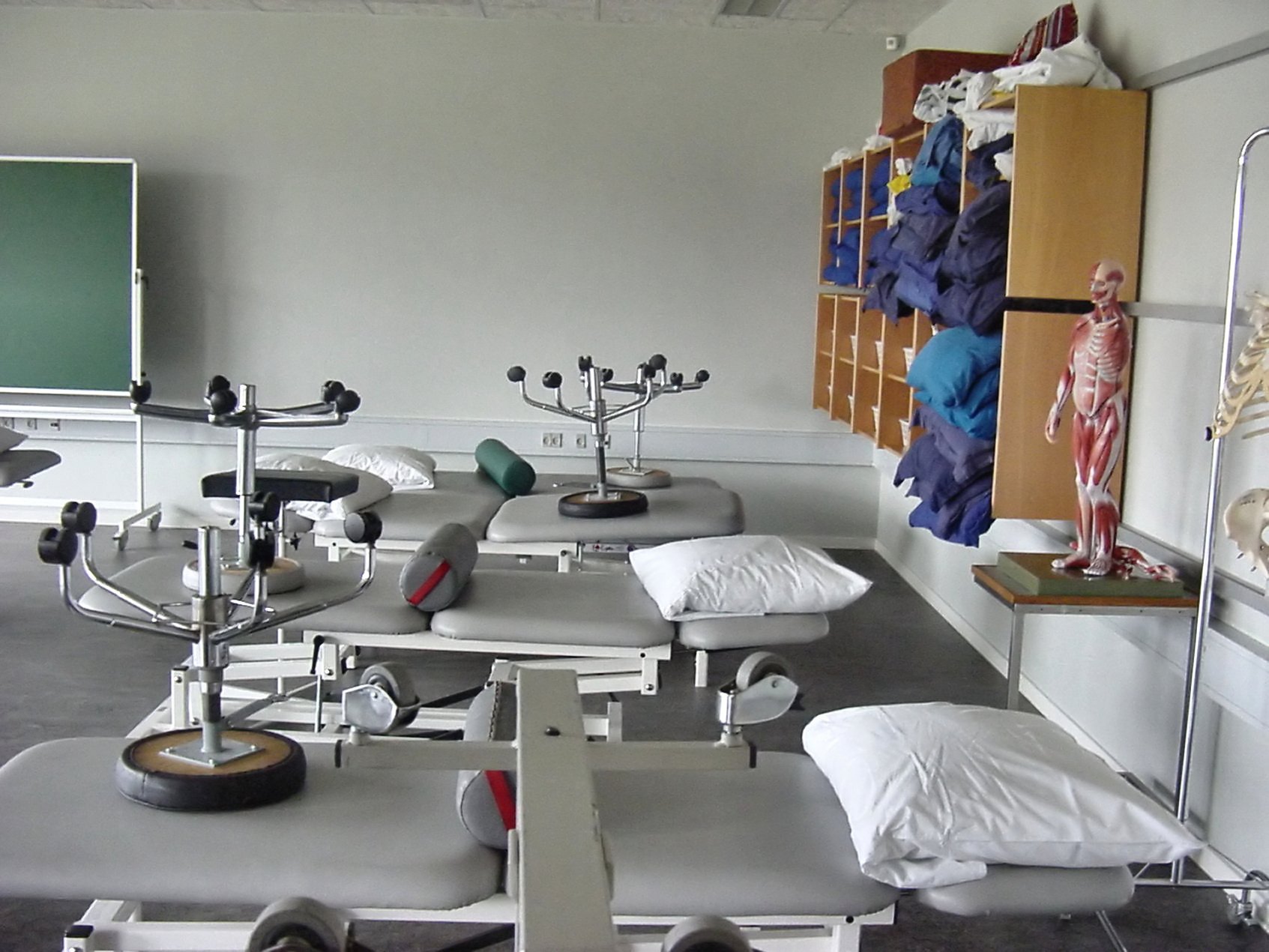How Much Is Nursing School? Discover the Current Nursing School Cost, from Program Tuition to Learning Expenses

Registered nurses represent one of the fastest-growing professions in the US. The career also comes with many benefits, from good nurse salaries, a stable career ladder, and personally rewarding work dedicated to improving the lives of patients and communities alike.
If you are considering becoming a nurse, one of the first key questions you should consider is: How much is nursing school? There is no clear-cut answer to the full cost of nursing school, as it depends on various factors, including the degree you are pursuing, the program you choose, where you want to study, and whether there are additional costs beyond tuition.
This guide will explore the average nursing school cost, from tuition for different degrees ( including ADN, BSN, and MSN degrees) to the additional expenses associated with getting a degree. If you want to be fully informed about how much nursing school costs, read on to find out.
Nursing School Cost in 2025 at a Glance
Here are the key takeaways about the current nursing school cost estimates and other expenses:
- Tuition costs vary widely depending on the type of nursing program, institution (principally between public and private), and location.
- Practical Nursing (PN) and ADN programs are the most affordable entry points into nursing, especially at public institutions.
- BSN degrees represent a significant financial investment but offer broader career opportunities.
- Bridge programs (LPN-to-ASN and RN-to-BSN) can be cost-effective for working nurses advancing their careers.
- Online programs often cost less overall due to savings on housing, transportation, and childcare.
- Graduate MSN programs can range significantly in cost depending on specialization and school.
Below, you can quickly compare the costs of tuition for various types of nursing programs:
|
Program Type |
Typical Duration |
Public Institutions |
Private Institutions |
Cost at Nightingale College (2025-2026) |
|
PN Diploma Program |
12–16 months |
$4,000 – $15,000 |
$25,000 – $50,000+ |
$32,031 – $42,290 |
|
LPN-to-ASN Track |
12–18 months |
$15,000 – $50,000 |
$50,000 – $60,000+ |
$40,191 – $50,450 |
|
ADN Program |
2 years |
$24,000 – $40,000 |
$30,000 – $66,000 |
- |
|
BSN Program (Full-Time) |
3–4 years |
$90,000 – $120,000+ |
$120,000 – $250,000+ |
$144,564 – $185,600 |
|
RN-to-BSN Path |
1 year |
$20,000 – $80,000 (online) |
$32,000 – $100,000+ (on-campus) |
$34,141 – $44,400 |
|
MSN – Nurse Educator |
2 years |
$35,000 – $70,000 |
$70,000 – $100,000 |
$25,797 – $36,056 |
|
MSN – PMHNP |
2 years |
$35,000 – $100,000 |
$70,000 – $100,000+ |
$28,517 – $38,776 |
|
MSN – FNP |
2 years |
$35,000 – $100,000 |
$70,000 – $100,000+ |
$28,517 – $38,776 |
It is important to note that the nursing school cost ranges presented above are only estimates and should be corroborated by the costs at your chosen institution.
If you want to enroll in one of the academic programs at Nightingale College, you should get an estimate that accounts for your current situation or consult the 2025-2026 Cost of Attendance sheets for undergraduate and graduate programs.

How Much Is Nursing School Based on Degree and Program?
Regarding nursing school costs, the first thing to consider is what degree you’re pursuing. Since each degree varies in length, depth of study, and characteristics, they come with their price tag.
If you want to enroll in one of the academic programs at Nightingale College, you can consult the 2025-2026 Cost of Attendance for Undergraduate Programs and Graduate Programs.
Practical Nursing (PN) Diploma Program Cost
If you're looking to start your nursing journey quickly and affordably, a Practical Nursing Diploma (PN) may be the ideal entry point. These programs typically take about 12 to 16 months to complete and cost significantly less than full nursing degrees. The average cost of a PN diploma is around $4,000 to $15,000 at public institutions, while private schools may charge $25,000 to $50,000, or more. Total expenses vary by school reputation, location, and program format (online vs. in-person), as well as whether you qualify for any tuition discounts or aid.
At Nightingale College, the PN Diploma Program is designed to help learners enter the workforce quickly while building a solid foundation for further nursing education. Tuition is $485 per semester credit. The estimated cost of attendance for the program is $42,290 to $32,031, depending on whether you live off-campus or with family. This estimate includes tuition and fees, along with other costs such as housing, food, and transportation. You can get a more customized estimate here.
Ready to begin your career in nursing? Explore the PN Diploma Program at Nightingale College.
LPN-to-ASN Track Program Cost
For Licensed Practical Nurses (LPNs) looking to take the next step, the LPN-to-ASN Track offers a bridge to becoming a Registered Nurse. These programs generally take 12 to 18 months to complete and cost between $15,000 and $50,000 at public institutions. At private schools, the price tag may reach $60,000 or more. Costs depend on factors like program length, delivery format, and school type.
At Nightingale College, the LPN-to-ASN Track is structured to accommodate working professionals. Tuition is $825 per semester credit. The estimated total cost of attendance ranges from $50,450 to $40,191, depending on whether you live independently or with family. This includes tuition, fees, and associated living expenses.
If you're an LPN ready to earn your RN credentials, our LPN-to-ASN Track is a cost-effective, flexible option to help you reach your goals.
Get an estimate and learn more about the program at Nightingale College.
Associate Degree in Nursing Program Cost
An ADN is the fastest route into the registered nursing career. It only takes two years to complete, making it the most affordable option. Since so many institutions offer ADN programs, the tuition prices will vary noticeably. Should you pursue an Associate Degree in Nursing at a public university, you may have to pay anywhere from $24,000 to $40,000. If you want to take the private path, the tuition will also increase accordingly, with some universities charging $30,000 up to $66,000 for an ADN degree. Note that there may be discounts in tuition for veterans or military service members, so if you match the requirements, nursing school will be cheaper for you. Generally, the cost will fluctuate depending on the reputation of the school, the geographic location, the length of time spent studying, and your residence, among other variables.
Bachelor’s of Science in Nursing Program Cost
With the BSN becoming increasingly the gold standard of nursing education, the average cost of a bachelor’s degree in nursing is very high on the priority list for many aspiring nurses. Total BSN costs go from $90,000 to over $200,000 or more for all four years, according to costhelper.com. The wide range of costs can be, once again, explained by the reputation of the school, location, its status – private or public – and so on. If you factor in other expenses, such as transportation or boarding, the prices for a full-time BSN can even go as high as $250,000 or more.
At Nightingale College, tuition for the BSN program is $645 per semester credit, not including the nonrefundable application fee of $150. The cost of attendance for the program is $46,400 or $36,141 per 9 months, which places the overall cost for the nursing program at $185,600 or $144,564, depending on whether you will live off-campus or with parents or family. The BSN Program at Nightingale College, which can be completed in less than 3 years, follows a blended-distance format, with online didactic instruction and on-ground supervised field experience. Get an estimate for the BSN Program at Nightingale College.
Find out more about Nightingale College’s BSN program!
RN-to-BSN Fast-Track Program Cost
If you’re already working as a Registered Nurse based on your ADN degree and have decided it’s time to advance your education, then an RN-to-BSN is the way to go. These programs take one or two years to complete and are a fantastic alternative for RNs wanting to advance their careers. RN-to-BSN programs can cost anywhere from $20,000 to $80,000 if you opt for an online program, or $32,000 to $100,000 or more if you choose an on-campus option.
Read more about the costs associated with RN-to-BSN programs.
The costs for the RN-to-BSN Track at Nightingale College are on the more affordable side of the spectrum. One semester credit is equivalent to $645, and the overall cost of attendance for the 1-year RN-to-BSN track is $44,400 or $34,141 per 9 months, depending on whether you are living off campus or with parents (including tuition and fees, as well as food, housing, transportation, and other costs).
If you are ready to advance your nursing education, our RN-to-BSN will help you become the best RN you can be at a reasonable cost. Get a price estimate for the Program.
Learn more about the RN-to-BSN Track at Nightingale College!
Master of Science in Nursing
Let’s talk about the costs of graduate studies in nursing. Pursuing an MSN degree will help you advance in your career, but a corresponding price is involved. MSN programs take 12 to 24 months to complete, and the MSN costs range from $35,000 to $70,000. It’s also not unheard of for MSN tuition to be as high as $100,000 for the program. Similar to the other degrees, in-state tuition for public universities will generally be significantly cheaper than out-of-state and/or private schools.
At Nightingale College, we offer learners who want to advance their education efficiently the opportunity to enroll in one of the three MSN Programs with different focuses.
Here are the costs for each one:
- MSN Ed Program for aspiring Nurse Educators – $460 per semester credit, with the estimated cost of the 2-year nursing program being $20,125. Including other expenses, the total cost of attendance per 9 months is $36,056 or $25,797, depending on whether you live off campus or with parents.
- MSN PMHNP Program for aspiring Psych Mental Health Nurse Practitioners – $550 per semester credit, with the estimated cost of the 2-year nursing program being $26,325. Including other expenses, the total cost of attendance per 9 months is $38,776 or $28,517, whether you live off campus or with parents.
- MSN FNP Program for learners aiming to become Family Nurse Practitioners – $550 per semester credit, with the estimated cost of the 2-year nursing program being $26,325. Including other expenses, the total cost of attendance per 9 months is $38,776 or $28,517, depending on whether you live off campus or with parents.
Get an estimate for your desired program or learn more about the academic programs at Nightingale College.

How Much Is Online vs On-Campus Nursing School?
Among the many things that impact nursing school costs is the format of the studies: is it an on-campus program offered by a traditional, brick-and-mortar institution, or an online program? The prices of online vs on-campus nursing schools will vary considerably.
With online programs, students rely on digital tools to learn and complete coursework. The lectures are online, class participation happens through chat boards, email, etc., and assignments are completed and turned in using online tools. Nursing is a hands-on profession, but there is an offline component even for online programs. Learners need to attend their clinical rotations and supervised field experiences on-site.
Still, online programs generally cost less than traditional ones. That’s partly because learners enrolled in online programs save a lot of money on other expenses, such as boarding, transportation, childcare, and others.
While an online RN-to-BSN program can cost $20,000 to $80,000, for an on-campus program, you may have to pay out-of-pocket $32,000 to $100,000, or more, for school-related expenses.
How Much Does Nursing School Cost Based on Location?
Another thing to consider when calculating the costs of nursing school is the location of the school you want to attend. It is very common for public schools to have two different tuition rates: the in-state tuition for students living in that state and the out-of-state tuition, which applies to students from a different state. The tuition rates for non-resident students are typically much higher. It’s not abnormal for the average cost of a public college nursing degree to be twice as high for out-of-state students.
Some states offer discounts to students who move from a different state. That’s not true of all schools, so checking with your university first is essential. Other institutions will offer special scholarships or financial aid opportunities for out-of-state students. Once again, checking with the college about their costs for non-resident learners is best.
How Much Does Nursing School Cost Based on the Type of School or Program?
Choosing a nursing school comes with another crucial decision: will you take the private or the public route? The average cost of a public college will differ from private nursing school expenses.
Let’s explore how tuition costs will vary by the type of institution:
Nursing Program Cost at a Private College
Compared to traditional schools, private colleges are typically smaller in size and offer increased flexibility, especially for non-traditional students or working professionals. The schedules are more adaptable to the learner’s needs, offer a more extensive selection of bridge or accelerated programs, and shorten the waiting list. Considering these factors, one can expect the tuition costs to be higher at private nursing schools compared to more traditional ones.
Nursing School Cost at a Community College
Community colleges are usually more affordable than private institutions. Also, they have a relatively long-standing tradition in the nursing community, which is an extra assurance that clinical hours will be easily arranged – a problem that might occur with newer, poorly established institutions. The waiting lists may be longer, and with only two (rarely three) start dates per year, it may be a while before students start nursing school. The toughness of the waiting lists requires higher GPAs, so you may have to retake certain classes. All of these details add up to a higher cost as well.
Full-Time vs. Accelerated Nursing Programs
Many universities will offer four-year Bachelor of Science in Nursing programs. Generally, these programs cost more than community colleges.
Students with a Bachelor’s Degree in a non-nursing subject who want to become a Registered Nurse can enroll in an accelerated nursing program. These programs take 11 to 18 months to complete and cost less than the traditional BSN. The cost of an accelerated Bachelor of Science in Nursing can range from $17,000 to $90,000.
Bridge Programs
Most private or public institutions will offer transition or bridge programs that consider some of your previous experiences and help fast-track your nursing career. Some of these include LPN-to-RN, RN-to-BSN, or RN-to-MSN. Pursuing one of these options can cost less money than a traditional program. First, you have already taken some classes in your previous studies, so you won’t have to pay for them again. Secondly, many RNs enrolled in bridge programs remain king in the healthcare industry throughout their studies, making it easier to bear the financial burden of nursing school.
Don’t underestimate the importance of short waiting lists. If you want to start working and earning more quickly, investing more in an institution with a shorter waitlist is worth it. You become a nurse faster, gain more experience, and set yourself up for success on a sped-up timeline.
That’s why Nightingale College’s No Wait List policy is so essential for you as a prospective student. You will earn your RN license faster and be on your way to a high-paying nursing career before you know it.
Explore the academic programs at Nightingale College and enroll today!
Additional Nursing School Costs and Expenses
Apart from tuition, there are other costs associated with getting your nursing degree that are easy to overlook. It’s important to consider them because they add up and can drive up the cost of your nursing education.
Course Books and Learning Materials
Nursing books are anything but cheap. You can expect to spend anything from a few hundred dollars to $700 per semester for textbooks alone. You should have access to the required books in advance to minimize those costs with some research. You can find online versions of the book, purchase it second-hand from previous students, or compare different vendors for the best price. Always make sure that you’re buying the correct version of the textbook.

Uniforms and Supplies
You will also be in charge of buying the scrubs you need for nursing school clinical rotations. Having more than one set of scrubs is better if you have back-to-back clinicals. Also, you must purchase essential nursing accessories, such as a stethoscope, pen light, medical scissors, and adequate shoes. The prices for these will vary. Stethoscopes can range from $20 to more than $300. However, when you’re just starting as a nursing student, one of the budget models should be more than enough.
Transportation Costs
Another essential thing to consider is transportation costs. Even if you are enrolled in an online program, you will still have to complete a certain number of hours of clinical practice. You are responsible for covering the cost of transportation to and from the experiential learning facilities. That might mean gas, car insurance, car maintenance costs, or signing up for a commuter pass. Regardless, it’s up to you to always make it on time for your scheduled clinicals.
Childcare
This applies individually, but if you are a parent, consider that you may need childcare during clinical hours, classes, or exams. You’ll likely also need extra time to study outside the classroom, so you must schedule childcare accordingly.
Exams and other fees
To get your nursing license, you need to pass the NCLEX-RN exam. Taking this exam usually costs around $200. Depending on the state you studied in, there may also be other fees (like fingerprinting or background checks) in the $75-$200 range. Many schools will have these costs included in their estimated program completion fees. It’s best to double-check if your school is one of these.
How to Pay for Nursing School?
Nursing school can be heavy on the wallet. But there are ways to make the burden less cumbersome. Let’s explore some resources available to aspiring registered nurses to pay for school costs.
Scholarships
There is a wide array of scholarships available for nursing students. Unlike loans, you do not have to repay scholarships, but they are more challenging to procure. That should in no way hinder you from applying for them, nonetheless. Many scholarships will come with certain conditions, like maintaining a set GPA throughout your studies, or having no to very few absences. These days, there are many scholarship finder websites or apps. You can also check with your institution’s Financial Aid Office for suggestions. Commonly, you will have to apply, submit supporting documents, and write an essay on a given topic. Applying for scholarships requires some effort, but getting one will be a big help in paying for nursing school.
At Nightingale College, we offer financial aid to learners through scholarships to maximize the results of educational programs and promote excellence in the field. You can find multiple options, including Internal Scholarships (including those for military personnel and veterans), Nightingale Foundation Scholarships, and External Scholarships.
The scholarships and other types of student resources and services available uphold our ongoing commitment to enabling aspiring learners from all walks of life, and particularly those from historically underrepresented and underserved communities, to achieve success in the field of nursing.
Explore the scholarship opportunities, learner experience, and academic programs at Nightingale College!
Employer Tuition Assistance
If you already work as a nurse and have decided to go back to school to advance your degree, one thing that could help you pay for college is tuition assistance from your employer. For that, check with the HR department at your place of employment and see if they can cover fully or partially the costs of nursing school tuition. They can offer assistance that will relieve you of some of the stress of finding resources for school.
Student Loans
You can also apply for student loans to help mitigate costs. Although some students may have reservations about it, it is the most common way of paying for higher education. Going into student loan debt is a fast way to start nursing school and, subsequently, your career as a Registered Nurse. Also, your earning potential will increase with the more experience you get, and with student loans having a fixed and generally low interest rate, you should be able to repay them in a reasonable amount of time. Still, according to a 2017 American Association of Colleges of Nursing (AACN) study, 50% of nursing graduates say that repaying their student loans is one of their biggest concerns.
You can always get more detailed information on how to apply for financial aid by contacting the Financial Aid Office at your chosen institution. The first step for a student applying for financial aid is filing the FAFSA (Free Application for Federal Student Aid). Once the application is filed, you will better understand the types of financial assistance available. It may be grants, scholarships, work-study programs, or loans. It will be easier to figure out your financial responsibility after you complete your FAFSA application. That can be done either online at studentaid.gov or on paper.
Read our insider tips on getting started with financial aid and the mistakes to avoid whencompleting your application for financial assistance.

Are You Ready to Undertake the Nursing School Journey?
Going to nursing school can be pricey, there’s no denying that. But for aspiring nurses, the benefits outweigh the costs. At the end of nursing school not only do they end up with an extremely meaningful career, but also one that’s recession-proof, pays well, and has a great job outlook.
As far as nursing school costs go, make sure you research thoroughly the programs you’re interested in. This way you’ll discover all the subtleties of financing your education – from tuition to the hidden costs of becoming a nurse.
It may not be easy. But fulfilling your dream of becoming a Registered Nurse will always be worth it.
Explore the academic programs at Nightingale College and start your nursing journey today!


